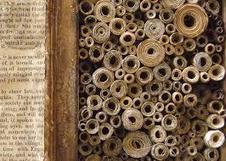"Le bimestriel « Lectures », revue des 550 bibliothèques publiques en Fédération Wallonie-Bruxelles, a publié, dans son double n°179-180 (janvier-avril 2013), un dossier « Livre et lecture en mutation », avec des interrogations sur l’histoire de la lecture, le caractère nourricier de la littérature (fiction), les avantages respectifs du papier et du numérique, les effets de la lecture sur le cerveau, la lecture-plaisir versus la lecture citoyenne, le récent courant du slow reading, le regain de la lecture à voix haute ou le rôle de remédiation des bibliothécaire."
Research and publish the best content.
Get Started for FREE
Sign up with Facebook Sign up with X
I don't have a Facebook or a X account
Already have an account: Login
Sciences de l'information et de la communication (SIC). Médiation des savoirs pour l'enseignement et la recherche.
Bibliothéconomie. Library and Information Science (LIS).
Bibliothéconomie. Library and Information Science (LIS).
Curated by
Terheck
 Your new post is loading... Your new post is loading...
 Your new post is loading... Your new post is loading...
|
|











